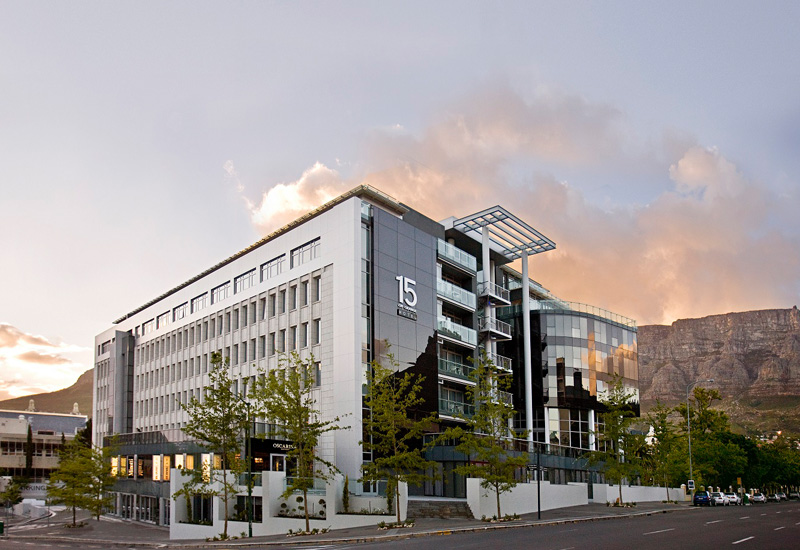DEVELOPMENT CHALLENGES
In an extremely fragmented market, with a population of around one billion people spread across 54 countries, all with different legal systems and languages, hoteliers face numerous challenges when looking to expand organically through management deals and signings.
According to Kyriakidis, the most significant challenges are geo-political.
“As an organisation that initially set-up [in the Middle East] in Saudi Arabia in 1980 and has since expanded to over 18 countries, we have weathered many situations and firmly believe in the potential of the region,” he said.
Kyriakidis said that by joining forces with Marriott International, Protea will now have support in managing local challenges such as developing infrastructure. For Marriott, which had nine operating hotels and 25 hotels in the pipeline in Africa prior to the deal, the benefit was obvious — acceleration of growth.

| Advertisement |
“The Protea acquisition allows us to leapfrog the competition to the number one slot in Africa,” Kyriakidis asserted.
Marriott will franchise or lease more than half the Protea portfolio, but according to Ward, management agreements are still the main operational model in Africa, with a few groups franchising, but only to trusted, existing partners.
Hilton Worldwide currently has a presence in 20 countries in Africa, with significant plans to expand.
Patrick Fitzgibbon, senior vice president, development, Hilton Worldwide, Europe & Africa said that developing relations with owners and expanding organically would be the way forward.
“Hilton Worldwide has grown organically for four decades and this sustainable strategy has allowed us to cherry pick markets and locations that are best aligned with the business. We place great emphasis on close working relationships with local partners and owners – for example we recently signed a new hotel in Lagos, Nigeria with the same owners we have worked alongside for over 25 years in Abuja.”
Fitzgibbon said it was the company’s aim to have “a hotel in every major gateway in the continent”, with Hilton excited to explore the areas of Ghana, Angola and Mozambique further, which are “brimming with opportunity”.
Additionally, the diversity of the continent means that the growth of mid-market brands will be a big opportunity for hotel groups.
“We see Hilton Garden Inn as an ideal brand to fill a gap in the market at mid-market level where consumers are looking for a higher quality product at an affordable rate. Africa’s scale and incredible diversity offers operators like ourselves a world of opportunities to grow across a range of brands,” Fitzgibbon added, referring also to the opening of the Conrad Pezula hotel in South Africa, at the other end of the scale from Garden Inn.
According to Kyriakidis, the focus for Marriott will be on tapping into Africa’s growing wealthy middle–class.
W Hospitality reported that 40% of the growth in spending power is forecast to occur in households with an average income above US $20,000. Additionally, 40% of Africa’s population live in cities and spending by urban dwellers is increasing twice as fast as rural spending, with per capita income, on average, being 80% higher than the country average.
Kyriakidis commented: “The increase in spending power means that individuals from Africa are travelling more and looking for the right affluent brands that meet their needs. At Marriott International we believe we are in a prime position to cater to this growing segment through our acquisition of Protea Hospitality Holdings.”
He observed that Africa had become an increasingly attractive hub for foreign investors in light of economic, political and social reforms that are sweeping through the continent, resulting in a much improved business environment conductive to direct foreign investment, which has more than doubled over the last decade.
“We see tremendous opportunities in the three major economies of Nigeria, South Africa and Egypt, where we are targeting 10,000 rooms in each of these countries as well as other rapidly expanding economies such as Mozambique, Kenya, Ethiopia and Angola where we see excellent opportunities for a presence of around 1000-2000 rooms in each market,” said Kyriakidis.
Fitzgibbon added that Hilton is looking to invest for the same reasons and for the potential of the leisure tourism market which he says is “vast”.
“Africa is probably the last largely undiscovered continent despite the breadth of it historic and natural wonders,” said Fitzgibbon, adding that key to achieving growth in the leisure market would be “encouraging African governments to “relax, or better still, abandon restrictive visitor visa practices that hinder tourism development”.
“There are encouraging moves in this direction but still more can be done as the countries of the continent begin albeit cautiously, to embrace a more ‘open skies policy’,” he suggested.
There are numerous brands looking to follow in the footsteps of giants such as Marriott International, Hilton Worldwide and IHG, with announcements from FRHI Hotels & Resorts and Rotana imminent.
Sami Nasser, regional vice president operations, Middle East & Africa, FRHI Hotels & Resorts said: “We have a few hotels in Kenya and two in South Africa but we’ll be making two major announcements in May; for sure Africa is very important for us”.
Similarly, Rotana CEO Omer Kaddouri highlighted the significance of SSA to the group’s portfolio: “We are looking to get busier in the Sub-Saharan region now, toward South Africa and we’d very much like to be present in Mongolia and Mozambique, so I think over the next three to four years we’ll have some nice announcements to deliver about Africa; Africa is a focus for us.”









 Search our database of more than 2,700 industry companies
Search our database of more than 2,700 industry companies









